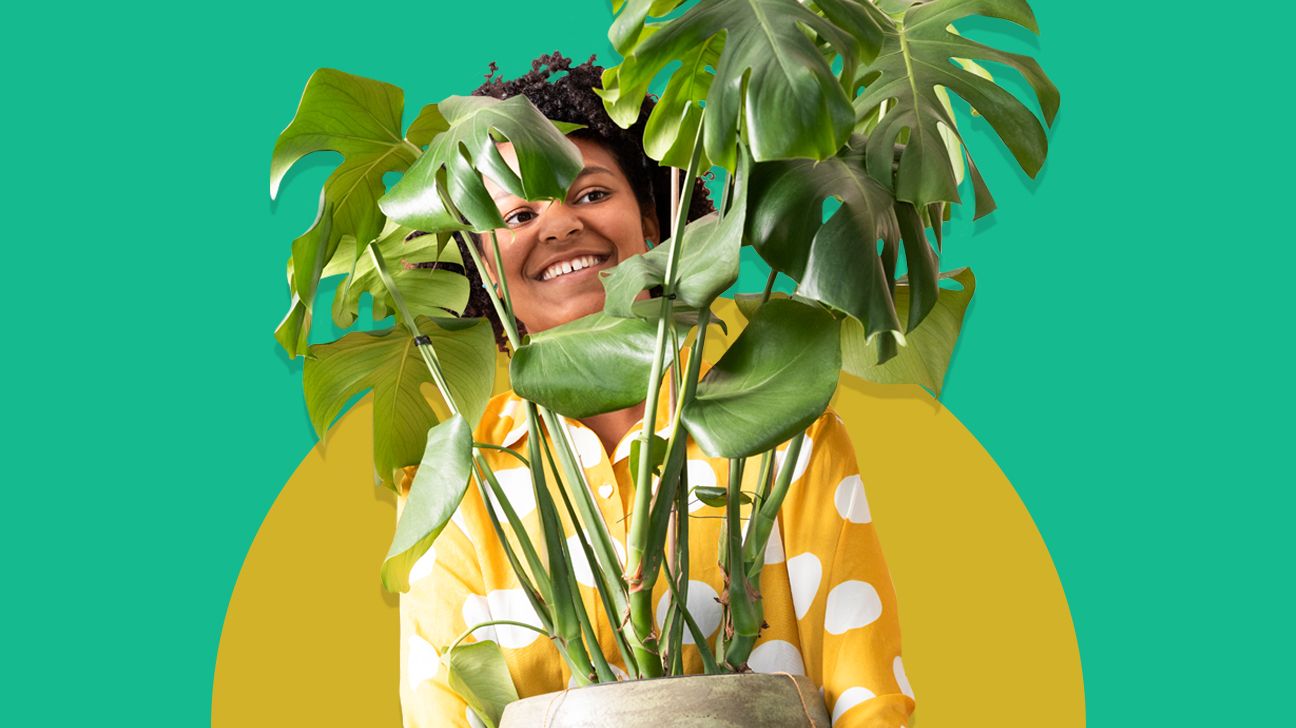A couple of months after I moved to New York City for grad school, I was out walking and spotted a little potted evergreen tree on a Christmas stand. It was about a foot and a half tall and looked to be the only one left.
Impulsively, I bought it and brought it back to my apartment.
I didn’t have a fancy pot to put it in, so I wrapped an old burgundy scarf around its plastic container, gave the tree a little water, and put it near my window to get some light. It wasn’t much, but I immediately felt its presence.
Being in a new city, thousands of miles away from family, and only just getting to know the people I was going to school with — loneliness had started to set in pretty strong. But this little tree added the tiny bit of vibrancy I needed to feel just a bit less alone.

Today, the pandemic has us working from home, distant from loved ones, and approaching even essential outings for food and supplies differently. And it doesn’t take much to see that this isolation is taking a toll.
A recent study found elevated levels of psychological distress and loneliness among adults across the country, while another study found that nearly 25 percent of people are experiencing symptoms of depression, compared to 16 percent before the pandemic began. That’s higher than depression rates following other large-scale trauma events, such as 9/11 or Hurricane Katrina.
We still don’t know when the pandemic will end or what our lives will look like in the future. If you’re single, live in a no-pet apartment, get most of your interaction through Zoom calls, or you’re currently unemployed — it’s understandable if you might have feelings of loneliness or depression.
Plants are pretty awesome. They produce oxygen, some are medicinal, some are edible, and they’re smarter than we think. In fact, research suggests that they can see, hear, smell, sense and respond to the world around them.
As far as their impact on us, they have a pretty good track record there as well. Research says plants have helped to improve concentration and productivity at work, promoted healing in patients, and have calming effects.
Gardening has also been known to relieve stress and small doses of nature can make us feel happier.
“Green space — plants, trees, grass, flowers — has been shown to scientifically heal our brains,” says Amanda Stemen, a licensed therapist and social worker in Los Angeles who has done a lot of research on this very topic. “That’s why we feel better after spending time outdoors.”
Indoor plants can have some of the same effects. But do they ease loneliness?
“Without a doubt,” she says. “When we spend time around plants, we feel more deeply connected to ourselves, others, and something greater, which is necessary to combat loneliness.”
In fact, some doctors in Manchester are actually prescribing potted plants to people to help them cope with anxiety, loneliness, and depression.
Pol Bishop, a horticulturist and gardener with Fantastic Gardeners in London, isn’t surprised by the emotional power of plants.
“I’ve been working closely with plants for more than 15 years and I can assure you that they do make us feel less lonely,” he says. “I know many people who started growing plants and gardening to fill their free time. Many of them ended up in love with plants and turned their free-time-filling thing into a hobby to fill loneliness.”
Andrew Gaumond, a horticulturist and botanist with Petal Republic, also agrees. “Plants require an intimate understanding of their needs in order for them to thrive in your home,” he explains. “Plant parents need to cultivate a connection with their respective plant species they are nurturing to help them grow and develop.”
Translation: You form an actual relationship with your plant baby when you care for it.
“These relationships develop over time — as you learn to understand watering cycles, feeding requirements, light preferences, temperature and humidity requirements relative to your respective plant,” Gaumond continues. “It’s truly a valid, real, and reciprocal relationship.”
As I learned myself, with my little New York tree, there’s also something to the ritual of actually caring for something.
“[Houseplants] ground us in rituals, like waking up and touching our plants’ soil or the leaves to see if they need anything,” says Saba Harouni Lurie, a licensed marriage and family therapist.
“This has an impact on our brains, too,” she continues. “Studies show that altruism stimulates our brain to produce dopamine, serotonin, and oxytocin.” These hormones contribute to us feeling pleasure, happiness, and love.
Plants can be especially helpful during a pandemic because caring for them offers us a healthy distraction from all the uncertainty and stress. “Our plants are living beings, and caring for them involves being attentive and kind to them and meeting their needs,” Lurie says.
There isn’t a magic cure for loneliness, especially right now. But caring for something, be it a succulent, a fern, or a potted tree, might just make you feel a little less alone. And sometimes, that’s a bigger help than you’d expect. It was for me.
Simone M. Scully is a New York mom and journalist who writes about health, science, and parenting. Find her at simonescully.com or on Facebook and Twitter.

